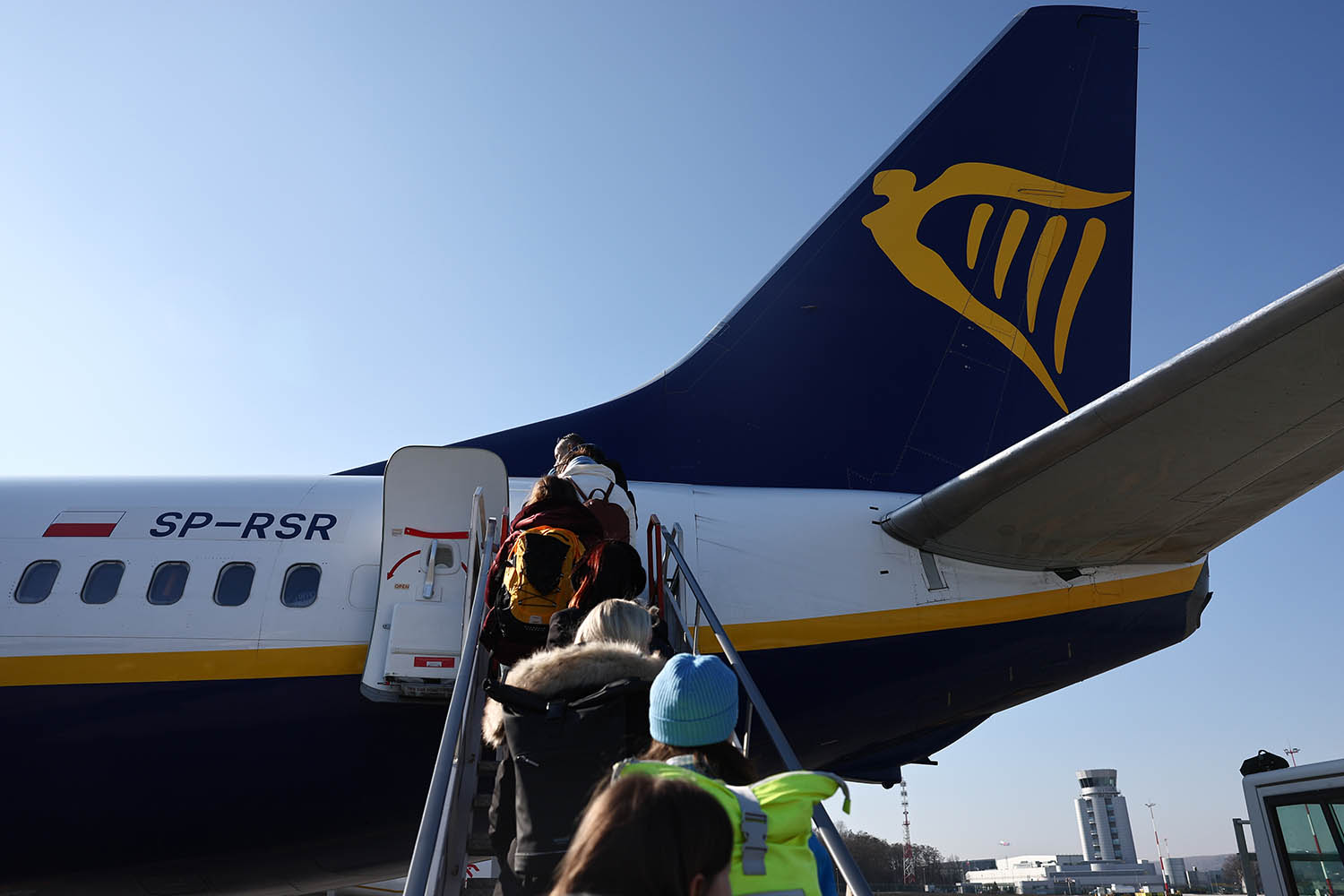In the golden age of air travel during the 1950s and 60s, passengers were accustomed to armchair-like seats, alcoholic drinks and a full dinner service on proper china.
The “seat pitch” – the distance between rows – stretched to almost 90cm (about 35in): enough, promised adverts, for even the 6ft traveller to stretch out.
A holidaymaker flying economy on most airlines this summer would have about 76cm of room and would expect to pay extra not only for food or drink, but also for baggage, seat choice and certainly any 1950s-style legroom.
Travellers on Ryanair currently have to cough up £20 to print a boarding pass if they do not have the airline’s app and up to £55 a person if they deign to try to check in at the airport (a charge that was first instated by Ryanair two decades ago).
The budget airline has been notorious for extra charges for years, with its unapologetic chief executive Michael O’Leary even proposing in 2009 that the company could charge people to use toilets during a flight.
Last week O’Leary prompted another round of outrage by announcing that staff can soon claim increased bonuses of €2.50 for every non-compliant bag they find and stop at the boarding gates.
Passengers can be charged up to £75 for every bag that exceeds the airline’s tight dimensions, and removing the cap on staff bonuses – currently €80 a month – means they will be incentivised to hand out penalties.
Free-of-charge baggage allowances are shrinking on the majority of airlines.
“I make absolutely no apology for it whatsoever,” said O’Leary. “I want our ground handling people to be catching people who are scamming the system.”
He also announced that from November Ryanair is making smartphone boarding passes mandatory, although O’Leary said in the Independent that passengers who do not have a smartphone will not face extra charges for printing their boarding pass as long as they have checked in online before arriving at the airport.
Newsletters
Choose the newsletters you want to receive
View more
For information about how The Observer protects your data, read our Privacy Policy
The “silver service” of the 1950s was unsustainable. “All of this came at a cost,” said Prof Janet Bednarek, who specialises in aviation history at Dayton University in Ohio. “So fewer people were able to afford to fly. Bottom line: most passengers were affluent and airlines catered to them.”
When the airline industry was deregulated, first in the US and then in Europe, everything changed. Travel was democratised – and cheapened. Airline extras – known as ancillary revenue – are vital to the business model of carriers.
Budget airlines are the biggest change in travel over the past 20 years, said travel expert Rob Staines. “The fact is we’ve got more people on far lower incomes these days who are able to travel and see the world.”
Staines added: “Travel, instead of being a luxury, has become a bit more of a grin-and-bear-it event that we go through to get to our destination.”
Nevertheless, there have been improvements in less obvious areas, such as air filtration, cabin pressure, lighting and turbulence.
“What catches people out is that it’s [the extra charges] for necessary items,” said Staines. “[People] see a bargain-basement fare and think: ‘That’s great.’ But as you go through that booking process, costs can spiral.”
Earlier this summer lawmakers in the EU voted in favour of allowing passengers to travel with larger cabin bags at no extra cost. The proposal would still have to be passed by the European parliament. The EU had already increased the minimum size of free baggage. Indeed, Ryanair was among the quickest airlines carrying UK passengers to react, increasing its free carry-on baggage limit by 20%, to 40cm x 30cm x 20cm.
“It’s great that the EU court is looking from the perspective of a consumer,” said Staines. “However, my first thought was: ‘These costs are going to get passed on.’”
Not everyone will feel the pinch. Bednarek said that there is also a widening wealth divide, with the richest passengers increasingly choosing to take private jets, and some airlines offering more luxurious first-class and business options. “So far, most passengers have prioritised low cost over service,” she said. “They may grumble about the lack of service, but they will still choose to fly. It is possible that the airlines could get to a level of service that is low enough that people will decide not to fly … but we haven’t seemed to get there yet.”
Photograph by Jakub Porzycki / NurPhoto via Getty Images

